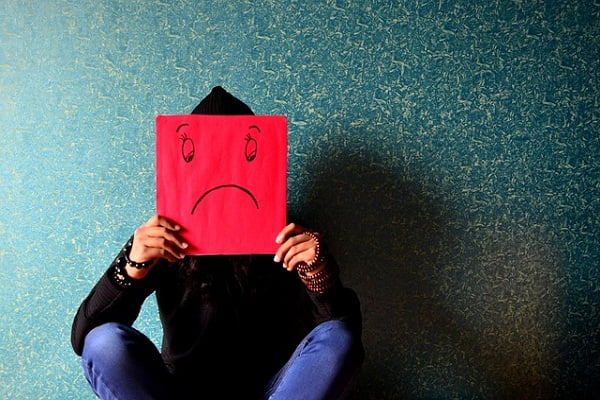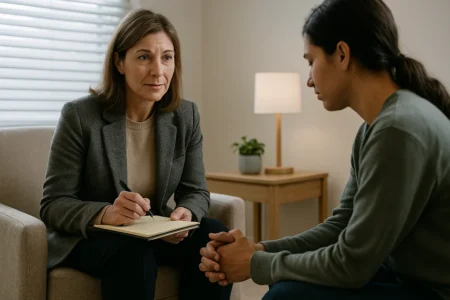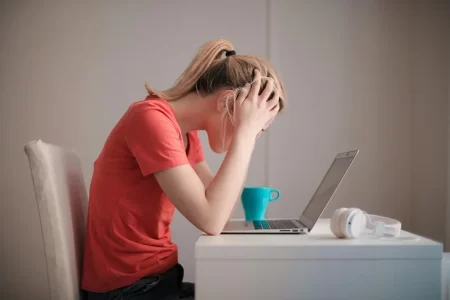
Stress and Depression
Stress is a body’s response to physical or emotional demands. It helps in acting during threat and difficult situations. It keeps you alert, motivated and prepares your body to respond to danger. During an emergency situation such as a work deadline or a sports competition, stress mobilizes your body to respond and improves your performance.
During stress, cortisol levels rise in the body. It is a helpful hormone released during an emergency or stressful condition. Stress affects large number of biological processes such as sleep, appetite, energy, sex drive, moods and emotions. It also leads to shrinking of hippocampus, a vital region of the brain and leads to damaging short-term memory function and learning abilities of an individual.
Depression is more severe and long-lasting than stress. It causes major mood changes such as painful sadness, negative attitude and despair. You may even feel exhausted and unable to act all day. The symptoms of depression are much more intense and difficult to treat as compared to stress condition.
During depression, coping with experiences and events in your life is more difficult. You will not be able to handle even minor stresses in your life. This makes the symptoms of depression and stress even more worse.
Can stress cause depression?
Highly stressful events such as loss of a loved one or losing a job can lead to depression. A stressful-situation triggers a feeling which makes it difficult to deal with stress. Everyone in a stressful situation may not develop depression. There are several biological factors which lead to depression due to stress. These factors may cause depression in an individual, while another person may not experience any such symptoms.
Sometimes, constant stresses of daily life triggers your fight-to flight response. This can even lead to depression in some individuals. Loss of short-term memory function and learning abilities due to stress can also lead to it.
In some cases, about 10% of people experience depression even without trigger of a stressful event.
Signs and symptoms of stress
Stress effects how you feel physically, emotionally, mentally and it also changes your behavior.
Emotional Symptoms of depression
- Overwhelmed
- Irritable
- Wound-up
- Anxious or fearful
- Lack of self-esteem
Mental Symptoms of depression
- Racing thoughts
- Constant worrying
- Facing difficulty in concentrating
- Facing difficulty in taking decisions
Physical Symptoms of depression
- Headaches
- Muscle tension or pain
- Dizziness
- Sleep problems
- Feeling lethargic all the time
- Eating too much or too less
- Sweating
- Breathing quickens
Behavioral changes due to depression
- Drinking or smoking more
- Shouting at people
- Avoiding people or things you have problem with
Causes of Stress
You may experience major life changes, which can cause stress. Stress can be due to any personal, professional or environmental issue. Certain events which can lead to stress include:
- Getting into a fight with your spouse or any other person
- Losing a job
- Major natural disasters such as earthquake or tornadoes, which can destroy or damage your house
- Getting into a car accident which can cause physical, emotional or financial stress
- Being robbed, mugged or attacked
- Shifting to another location
- Examination or planning your career
- Coping from a serious illness
- Some happy events such a planning a baby or a wedding can also lead to stress
Certain lifestyle choices can lead to stress. They can lead to stress only when they affect your overall health or if you depend on some unhealthy coping mechanisms. Lifestyle choices which can cause or increase stress includes:
- Heavy or excessive consumption of alcohol
- Not getting sufficient exercise that your body requires
- Smoking or using illegal drugs
- Working for longer duration of time without any break, or being a workaholic
- If you do not eat a balanced diet
- Spending lot of time watching television or playing video games
- Using your smartphone in bed, which will keep you from falling asleep
Types of Stress
Stress is classified into two major classes depending upon on the cause of their occurrence. Both of them lead to over activity of your body’s stress-response mechanism. These are as follows:
Acute Stress
Stress which is caused by a single event or by a temporary situation is known as acute stress. It is caused by events such as giving a test, an acute injury or a broken bone. Acute stress lasts for a short duration of time.
Chronic Stress
Situation or illnesses which cause prolong stress and may not even have a clear reason are known as chronic stress. It may last for longer duration of time as compared to acute stress. Chronic stress leads to increase in level of stress hormone cortisol and decrease in serotonin and neurotransmitter concentration in brain. These signs also indicate occurrence of depression in an individual.
Chronic stress occurs due to a personal, lifestyle, or health issue. Other common causes of chronic stress consist of:
- If you face any financial struggles
- Working in high-pressure job
- If you have personal or relationship issues at home
- If you have a feeling that there is lack of support from your family and friends
How does stress effect depression?
Generally, stress has a negative effect on your physical and mental health and can be harmful for depression as well.
Stress reduces your ability to carry out positive habits and perform coping strategies, which are essential for fighting depression. It also interrupts with your daily routine activities, which can lead to the development of negative lifestyle choices such as drinking or withdrawing from social relationships. These activities further cause stress and worsen symptoms of depression.
Stress also affects your mood leading to an anxiety and irritability, which are the most common responses to stress. In a stressful situation, you may feel anxious and anxiety may further develop into more negative feelings and frustration. This situation may be temporary but its frequent occurrence can cause depression. Read about causes of depression.
Strategies to manage stress and depression
Stress management techniques are extremely helpful in coping with depression. Relieving stress also prevents development of depression symptoms in an individual. Some simple stress management techniques include:
- Getting enough sleep if you are working overtime and have a stressful routine
- Eating a healthy balanced diet
- Try doing moderate exercises for 30 minutes on a daily basis, such as walking or swimming
- Taking occasional vacations or regular breaks from work
- Finding a relaxing hobby such as gardening or woodworking
- Reduce consumption of alcohol and caffeine
- Perform some breathing exercises to reduce heart rate
- Do yoga and meditation on a regular basis
- You can try attending religious services
- Try time management techniques, if you face difficulty in managing time at work or college
- Try mindfulness which can reduce stress and improve your mood
If certain lifestyle choices are cause of your stress, you can change the way you approach to your professional and personal life. Methods to reduce stress due to lifestyle choices include:
- Putting less pressure on you to perform at work, school or college. This pressure can be reduced by lowering your standards to any acceptable level which can be achieved without much effort.
- Do not take many responsibilities at work or at home
- You can share or delegate your responsibilities with others around you
- Surround yourself with supportive and positive family members and friends
- Move away from stressful environment and situations
- Share your problems and worries with close friends and family members
If you do yoga, meditation and attend religious services together, it may help in dealing with stress and depression both.
It is essential to identify which methods or ways can be best for you to manage stress. People usually manage stressors which are under their control by taking some effective steps, such as walking away from toxic relationships or leave a stressful job.
If self-help techniques do not provide relief from stress, you may visit a counselor, therapist or medical health professional. They will help you deal with stress and depression. You can try a talk therapy or cognitive behavioral therapy (CBT) or take medication. A doctor may recommend either of them or a combination of these depending upon your condition.
These advanced techniques are best for treating depression and chronic stress. They allow you to better handle your stressors and deal with them in a positive and constructive way. Some common medications recommended by doctors for stress and depression management include:
- Selective serotonin reuptake inhibitors(SSRIs) such as citalopram (celexa)
- Monoamine oxidase inhibitors (MAOIs) such as isocarboxazid (Marplan)






